This Site Was Built With You In Mind!
If My Car Shakes or Vibrates While Driving, How do I Fix it?
by Eddie Carrara
|
If your car shakes while driving down the road or the steering wheel vibrates, you're not alone. One of the most common complaints of vehicle owners is vibrations. Whether it is from the car tires, bent rim, or the brakes, they can be annoying, and if left unattended for a long time, it could cause premature wear and tear on the tires and suspension. |
Most vehicle owners think that when their car shakes or vibrates, it means they need an alignment. Vehicles don't vibrate because they are out of alignment. Correcting the alignment will point the tires in the right direction, preventing tire wear and pulling. Over time your car goes through some hard hits like potholes, curbs, speed bumps, and just every day poor road conditions.
After a while, things get knocked out of place. The wheels are no longer pointing in the right direction; it's so minor that even the naked eye can't tell it's out of alignment. But an alignment machine will take measurements (picture) of your vehicle's suspension and compare it to the vehicle's manufacturer specifications.
Adjusting the suspension and putting the car back into alignment is like a chiropractor adjusting your spine and putting it back into alignment. After leaving the chiropractor, you stand up and walk straight again for a while. After leaving the garage after a vehicle alignment, your car will drive straight again for a while, but it will not fix vibrations and shakes. Shakes and vibrations are caused by out of balance tires, uneven wear on the tire tread surface, built-up mud or snow on the inside of the rim, etc.
Bald Tire Blowout
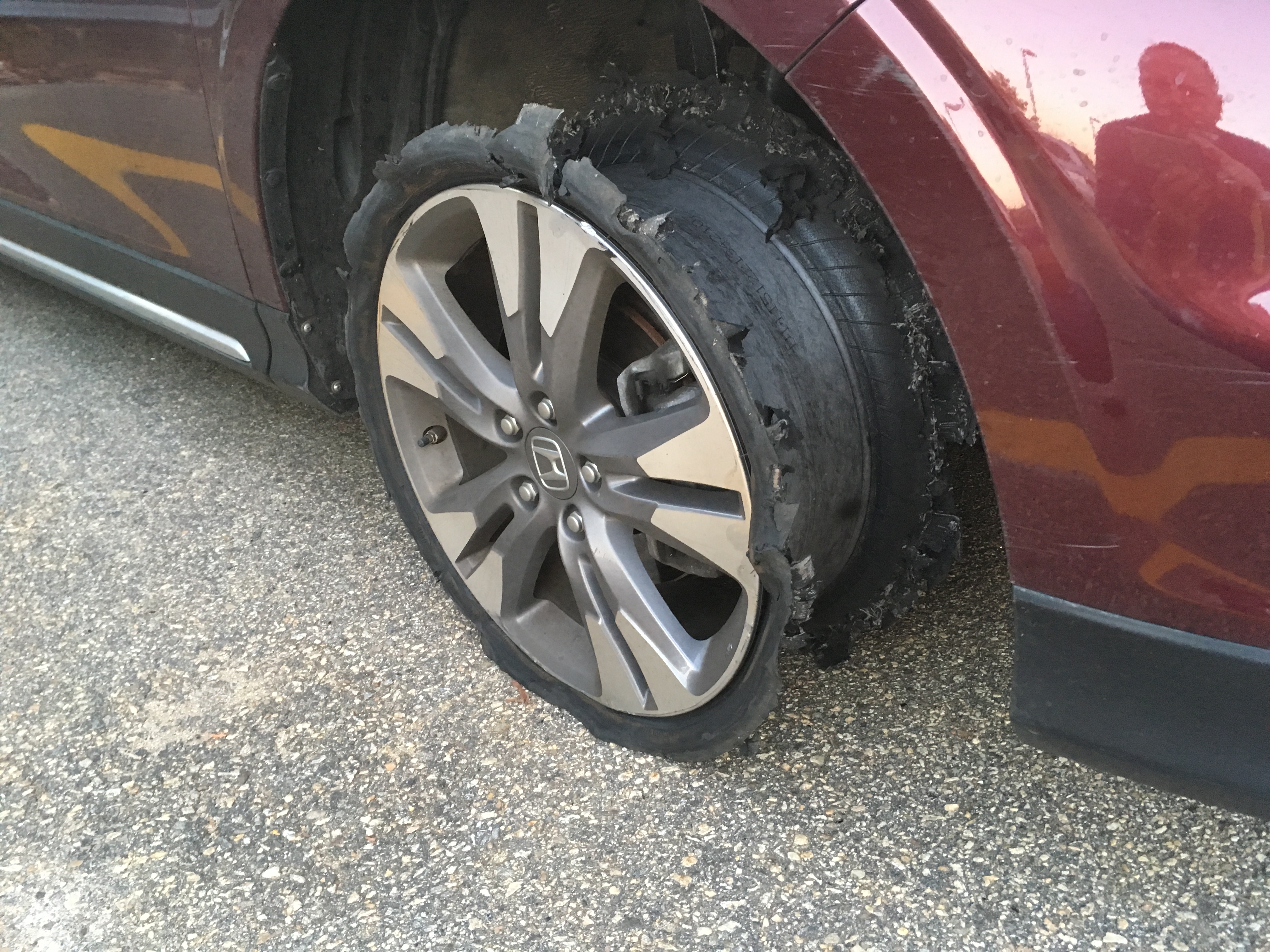
The most common cause of tire shakes or vibrations is tire balance. Qualified mechanics can fix these typical vibrations by merely having your tires balanced. But there are some cases where it gets a little more in-depth because a tire balance didn't fix the vibration. This type of problem is where you need that qualified mechanic I was suggesting. I find many mechanics will give the customer a story and tell them their shock are old, or their alignment is out, just so the customer will go away.
If Your Car Shakes, Try Tire Balancing First
A reputable garage will have a tire balancer machine called "Hunter Road Force Machine" or something similar. A road force machine will measure rim run-out (check for a bent rim), locate hard spots in a tire tread, check for broken belts in a tire, diagnose defective tires, and balance tires. It is truly the best machine for car shakes and vibrations, in my opinion, so ask your mechanic if they have access to a Road Force Machine if you have a problem you can't fix with a regular tire balancer.
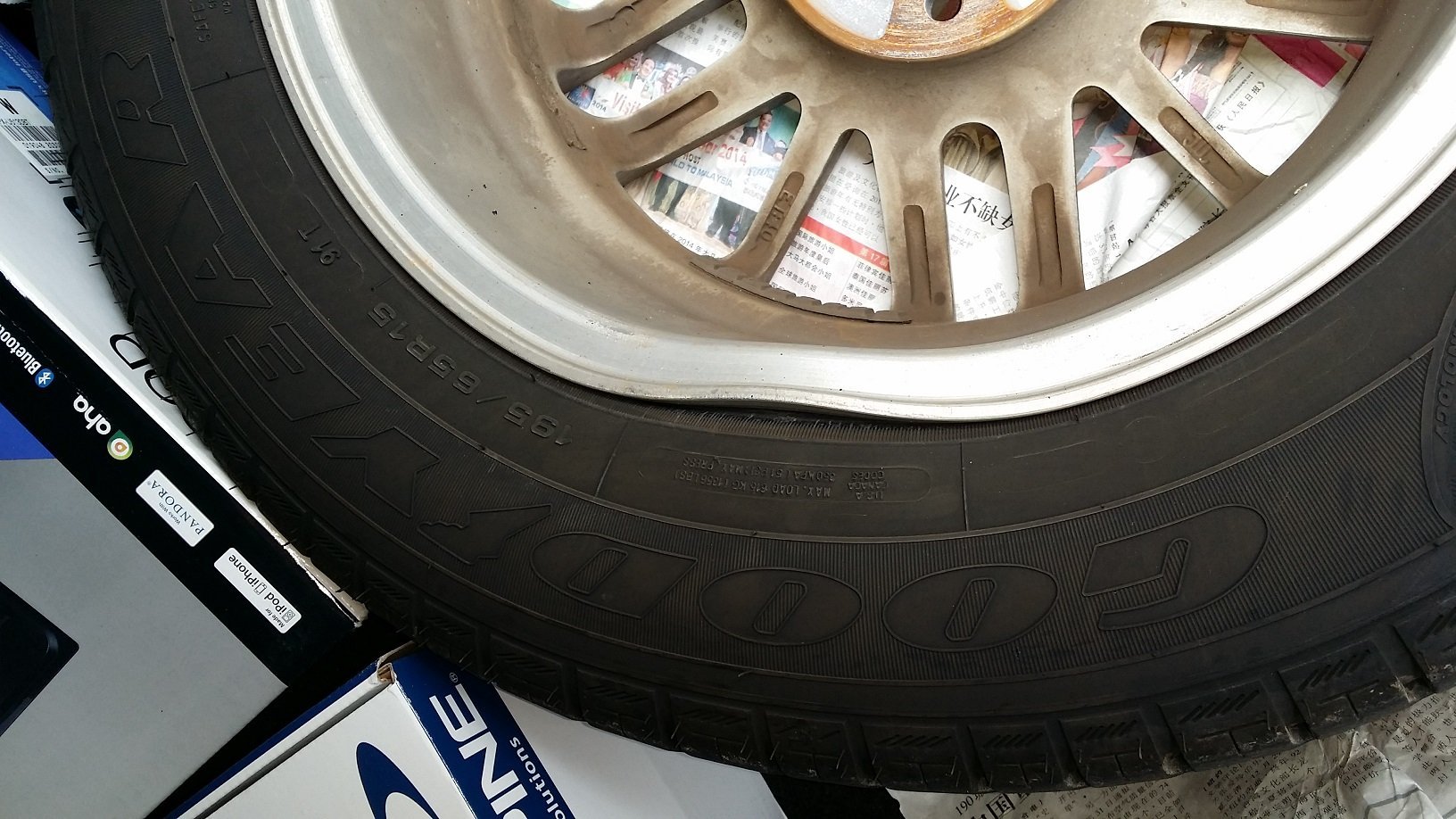
There are other less common causes of car vibrations like worn suspension parts, brake rotor pulsation, snow, mud, debris, things stuck in and on tires, transmission and motor problems, and loose wheel bearings. All of these could give you a vibration or make your car shake, but I was addressing the most common issue associated with car shakes and steering wheel vibrations.
So if your car has a vibration or a shake that drives you crazy, I recommend having it checked as soon as possible. Like I mentioned earlier, leaving a vibration alone, hoping it will go away, will only lead to tire chop and cupping, premature wear on suspension components, and worst of all, insanity. It will drive you crazy if it hasn't already.
Car Shakes or Vibrates When Applying Brakes Video
In the video below, you can see who the car shakes or vibrates when applying the brakes. You'll notice that I'm driving about 80 mph, so the shake isn't that bad, but it is noticeable. To fix this problem, either replace the rotors or have the rotors resurfaced if they're within spec (thick enough).
Wheel Bearing Noise VS. Tire Noise
Car Shakes FAQ’s
Car Shaking at Idle.
When a car shakes at idle while the transmission is in the park position, it usually is a sign of the engine not running correctly or skipping/misfiring. This condition will also affect the performance of the engine while driving, causing hesitation or bucking. It may also cause low fuel mileage, which is the least of your worries. The next step to correct this problem is to have the engine diagnosed before it damages the catalytic converter.
Car Shaking at Idle When the Transmission is in Drive.
If a car shakes at idle when the transmission is in the drive position, there are a few common problems to look for first before digging in too deep.
- Low idle is a possible suspect. If the idle is too low, it will cause the car to shake or vibrate with the vehicle in drive and your foot on the brake. If possible, raise the idle a few 100 RPM's and notice if the vibration disappears.
- Worn or damaged engine or transmission mounts can cause a vibration or shake at idle with the car in gear and your foot on the brake. If any of the power-train mounts are torn, broken, or worn, it can send a vibration through the chassis that will shake your teeth out of your head. Once the vehicle is moving, the shaking subsides because the stress on the mount is gone. If you suspect that you may have a faulty power-train mount, have all of them inspected by a reputable mechanic.
- A damaged or broken exhaust mount can cause a vibration or shake when the transmission is in drive with your foot on the brake. The exhaust system is directly connected to the engine and vibrates a lot. But because rubber hangers support it, the transfer of that vibration is minimal. If a rubber hanger becomes damaged or broken by impact, age, or defects, it can cause a severe vibration through the chassis.
Car Shakes When Driving Slow?
When a car shakes while driving slow, the most common problem is usually related to a tire problem. When a tire is low on air or damage to the tire itself, it can cause a shake or wobble when driving at slow speeds. Here is how you should address the problem;
- Check all tires for proper inflation. Most tires should be above 30 psi, but to be sure, check the tire's side; it will display the tires' recommended inflation PSI with embossed lettering.
- Check all tires for bubbles in the sidewall. A tire that has hit a pothole or object in the road could develop a bubble in the sidewall and cause a vibration when driving slow. If you find a tire with this condition, I highly recommend replacing the damaged tires because it is unsafe and could blowout without warning.
- Check all rims for any damage or dents. Damage or dents can cause the car to wobble or shake at all speeds but are more noticeable when driving slow.
- Check all tires for uneven wear. Chopped or uneven tread wear is a widespread problem with shakes at low speeds. The shakes are usually accompanied by a rumbling noise as well under these conditions. A quick visual inspection of all your tires can save you time by not having to bring your car in for a diagnosis.
- Bald tires can cause a wobble or vibration when driving slow. Visually inspect the tires. If any of the tires are close to being bald, it may be the cause of your shake. I highly recommend replacing bald tires as soon as possible; it is dangerous to drive a vehicle with these conditions.
Examples of Poor Tire Conditions
A quick check of the vehicle's tires and rims can save you the hassle of making an appointment at your local garage. Inspect the tires for uneven wear. This condition can result in a rough ride, vibration, and noise. Inspect the inside of all rims for any built-up debris like sand, mud, rocks, and snow, all of which can cause severe vibrations.
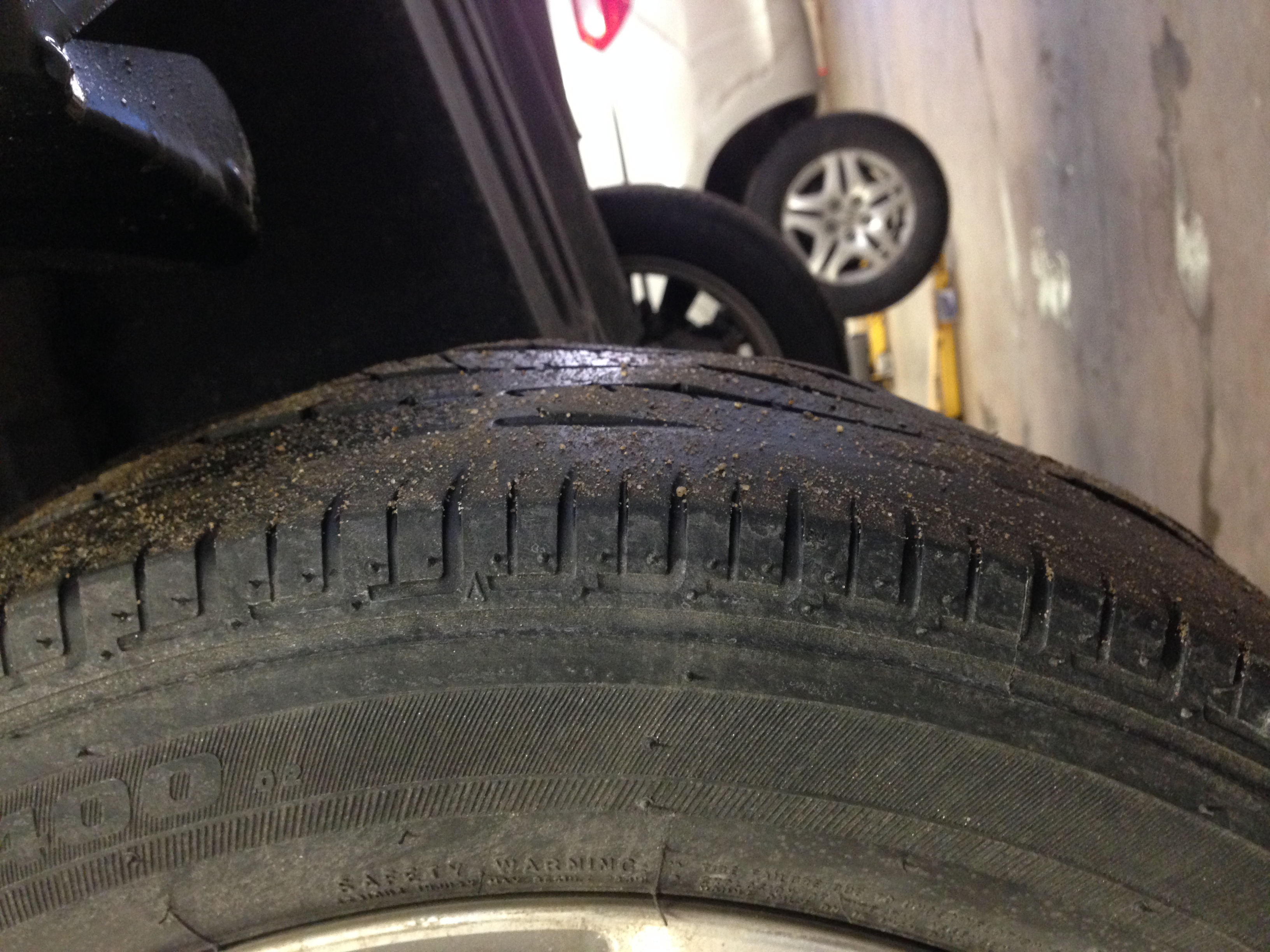 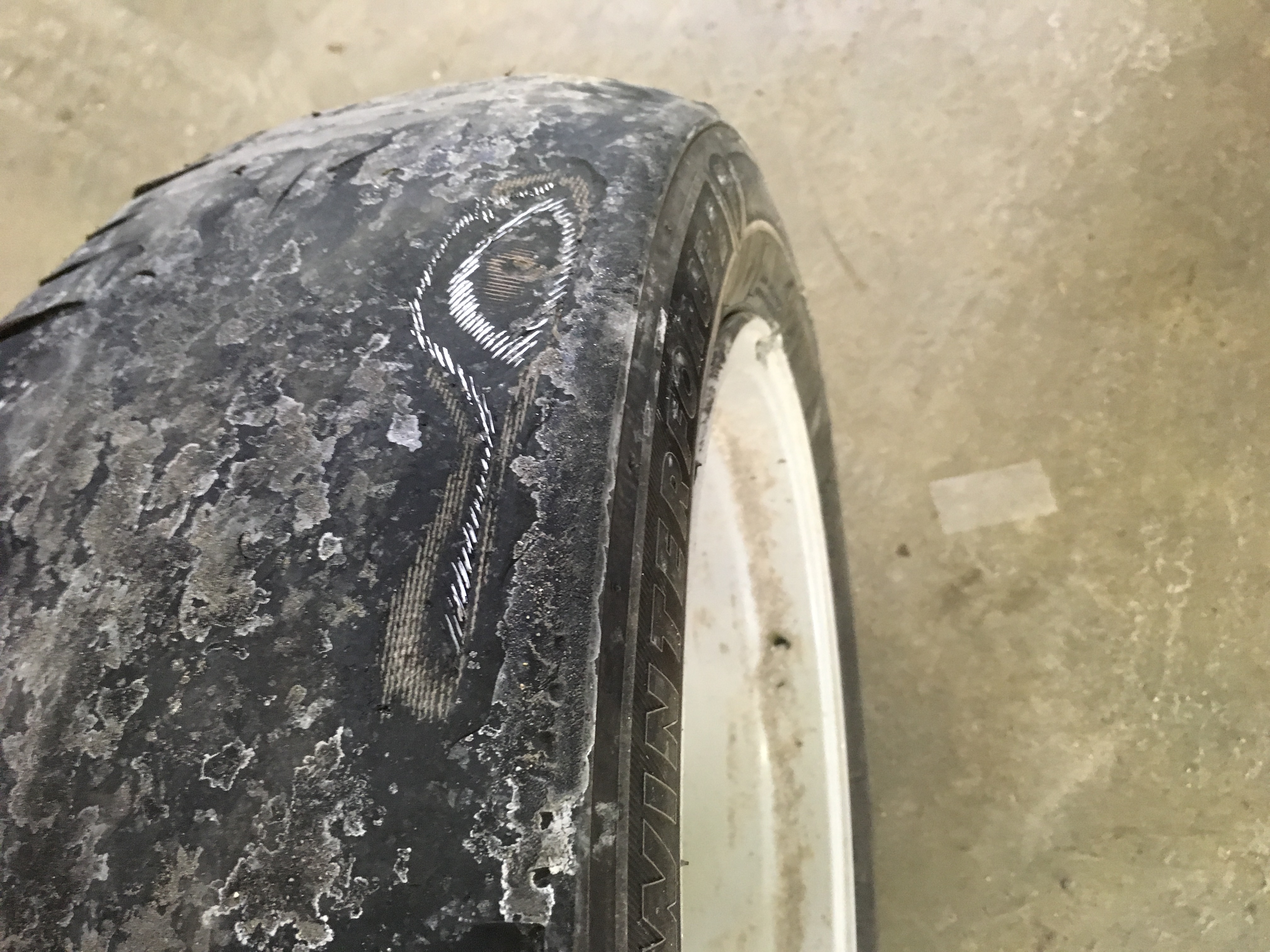 |
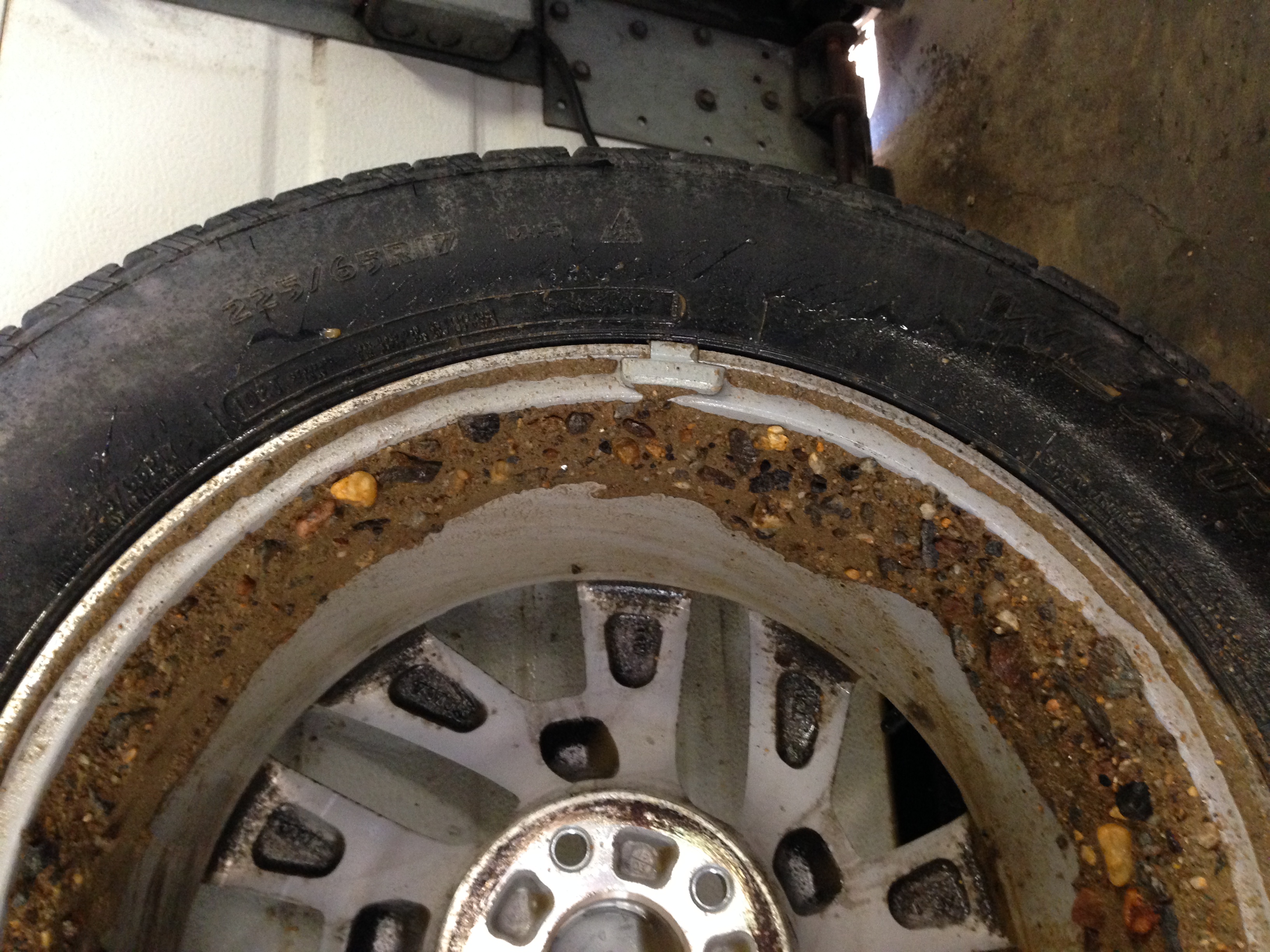 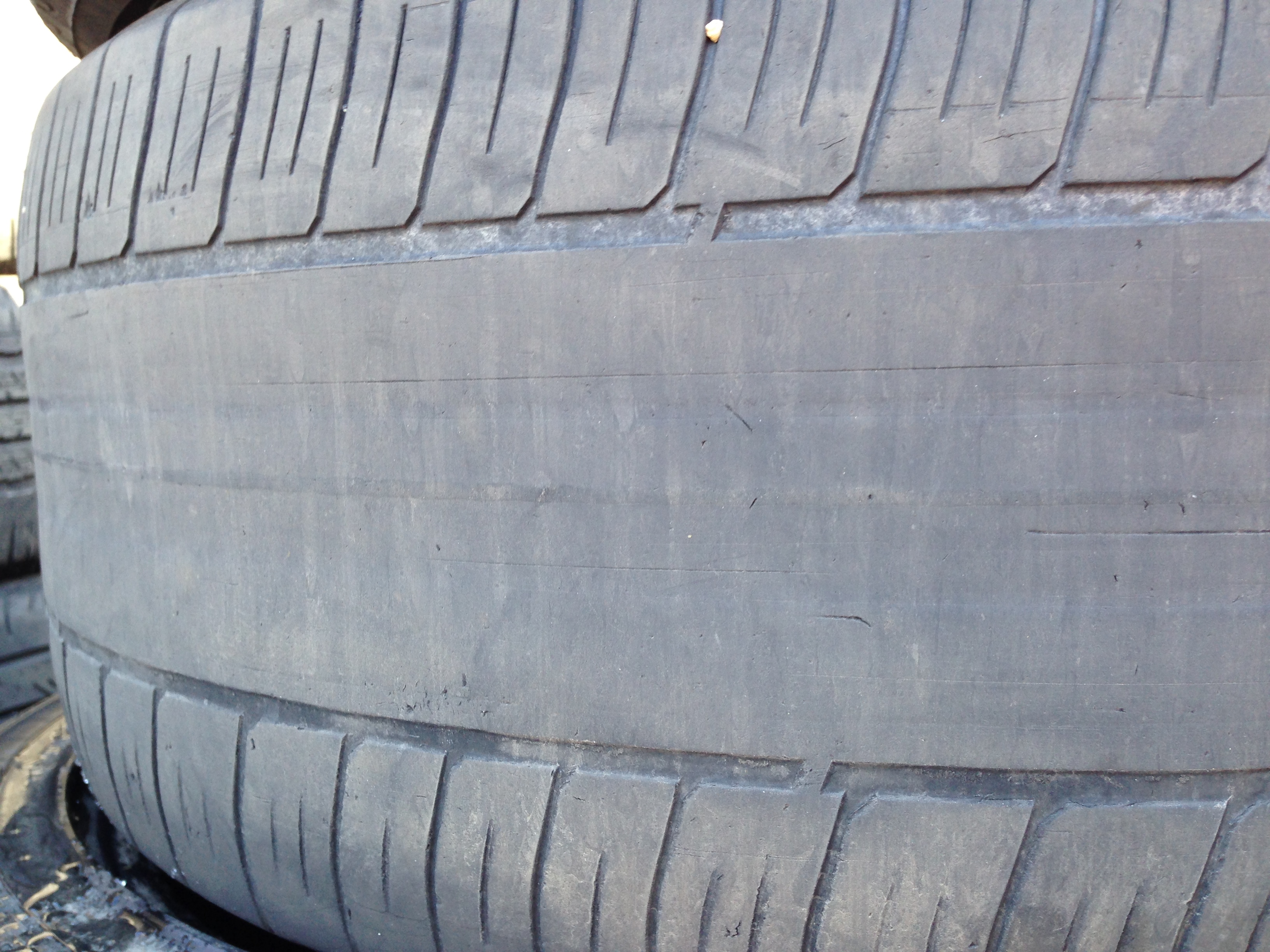 |
My Car Shakes When I Hit 60 MPH?
Unbalanced tires commonly cause vibrations or shakes over 60 mph. Not all tires can be balanced to perfection, like most of us want because there are so many variables. If you purchased cheap tires, you'd most likely have some shake because the tires are cheap, and not much research and development go into a $40 tire. Manufacturers offer these tires to just get you by.
If you have purchased reputable tires and have done your homework on the tire's customer reviews, you may have a defective tire. It's not uncommon for tires to come from the manufacturer with internal defects undetectable with a visual inspection. The tires will need special machinery to detect defects. The Hunter Road-Force tire balance machine can analyze tire defects, but the machine is only as good as the mechanic doing the work.
My Car Shakes When Driving Over 70 MPH?
Unbalanced tires commonly cause vibrations or shakes over 60 mph. Not all tires can be balanced to perfection, like most of us want because there are so many variables. If you purchased cheap tires, you'd most likely have some shake because the tires are cheap, and not much research and development go into a $40 tire. Manufacturers offer these tires to just get you by.
If you have purchased reputable tires and have done your homework on the tire's customer reviews, you may have a defective tire. It's not uncommon for tires to come from the manufacturer with internal defects undetectable with a visual inspection. The tires will need special machinery to detect defects. The Hunter Road-Force tire balance machine can analyze tire defects, but the machine is only as good as the mechanic doing the work.
Why is my Car Shaking in Park?
If your car is shaking in the park position, the engine may have a problem. Depending on what is causing the vibration, you'll need to investigate. If the motor is sputtering, hesitating, and running poorly, this is most likely what is causing the shake. If the engine is running smoothly and without any issues, it's possible one of the power-train mounts is damaged or broken and needs attention.
Another common cause of a shake in the park position is a damaged or worn exhaust mount because it transfers vibration through the exhaust system. The exhaust system hangs by rubber mounts to absorb vibration. If the exhaust is sagging because of broken or lost hangers or is pushed up against the vehicle's floor, it will cause a vibration in park.
Why is My Car Shaking When I Start it?
If a car shakes when you start it and then disappears once the engine is running, the most likely cause would be a worn or broken power-train mount. When the motor first starts, it creates a lot of vibration throughout the vehicle. Still, the rubber power-train mounts absorb most of the vibration. If one or more rubber mounts are worn or broken, the vibration can become extreme and worse over time by adding stress to the other hangers that are not damaged or worn.
Car Shakes When Driving and Check Engine Light is On?
Several problems could cause a car that shakes when driving, and the check engine light is on. The first step to figuring out why the check engine light is on would be to have the code pulled from the computer. Pulling the code may not explain the problem, but the code will give you an idea of what's causing the problem.
The most common cause of a shake when driving with the check engine light on is the Oxygen sensor, some vehicles have one O2 sensor, and other vehicles can have up to four O2 sensors, so guessing at what the problem could be can become very expensive.
I recommend having the code pulled from the computer because the O2 sensor is only one possible issue. There are hundreds of possibilities, from engine and transmission sensors to computers and mechanical failures. Here are a couple of examples; low coolant could cause your check engine light to come on and also cause a shake when driving, so I highly recommend pulling the code from the vehicle's computer first.
If you have any questions about your car, please don't hesitate to ask. I enjoy helping people like you with the issues they're having with their vehicles. I also find great pleasure when someone has a question about a quote for a repair needed or if someone is trying to scam them. Sometimes I'll tell you to get a third opinion if I think it's necessary, so if you have a question, ask.
Oh, and one more thing, if you know someone who could use this information or if you would like to share it with friends, email them the link or click one of the share buttons in the box on this page. I would really appreciate it, thank you.
Return from Car Shakes to Simple Car Answers Home
This article is accurate and true to the best of the author’s knowledge. Content is for informational or entertainment purposes only and does not substitute for personal counsel or professional advice in business, financial, legal, or technical matters.
See what other visitors have built for web pages
Click below to see web pages other visitors have built...
Van Hesitates at Low Speeds Not rated yet
When driving my van at low speeds, the engine hesitates on an off but it is OK at high speed. What do you think the problem could be?



New! Comments
Do you have a question about your car? Leave me a comment in the box below, I bet I can answer your question better than your mechanic.